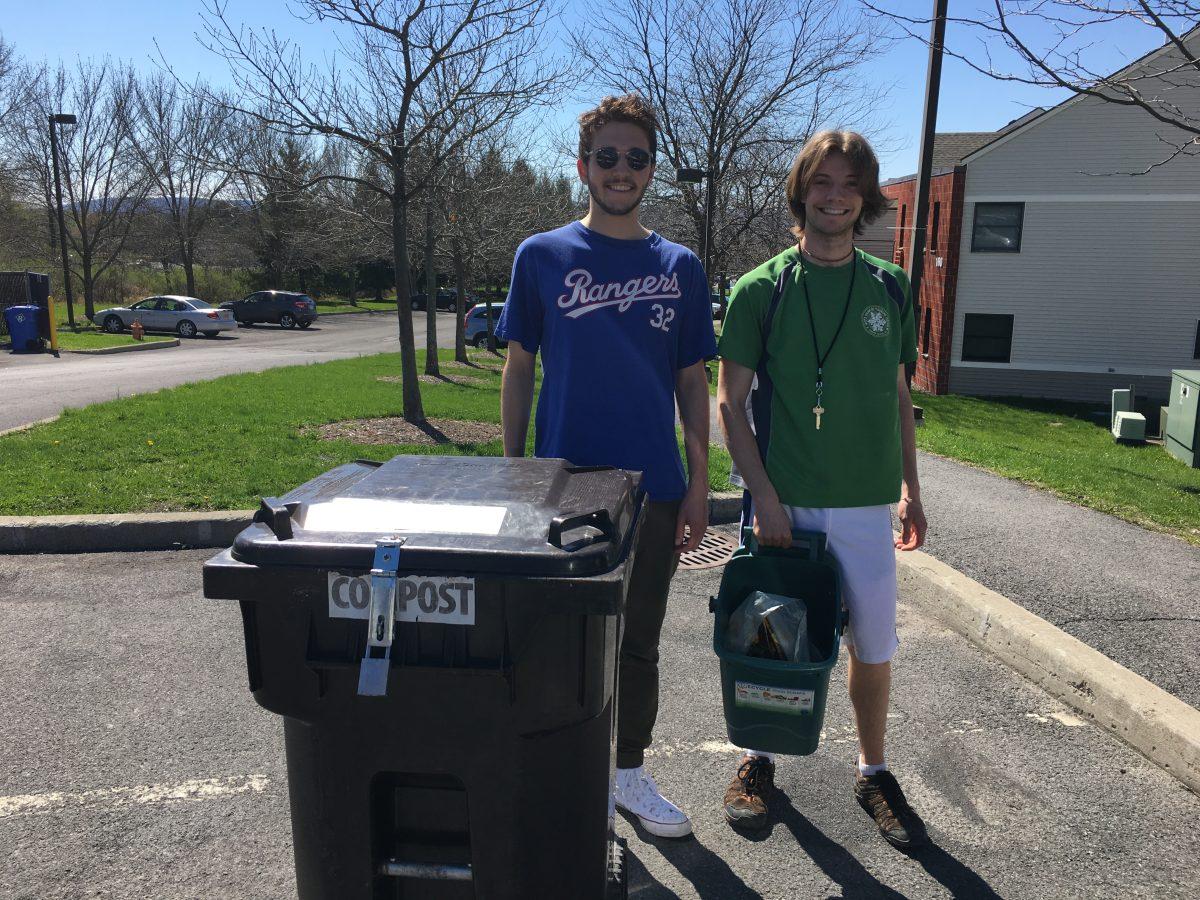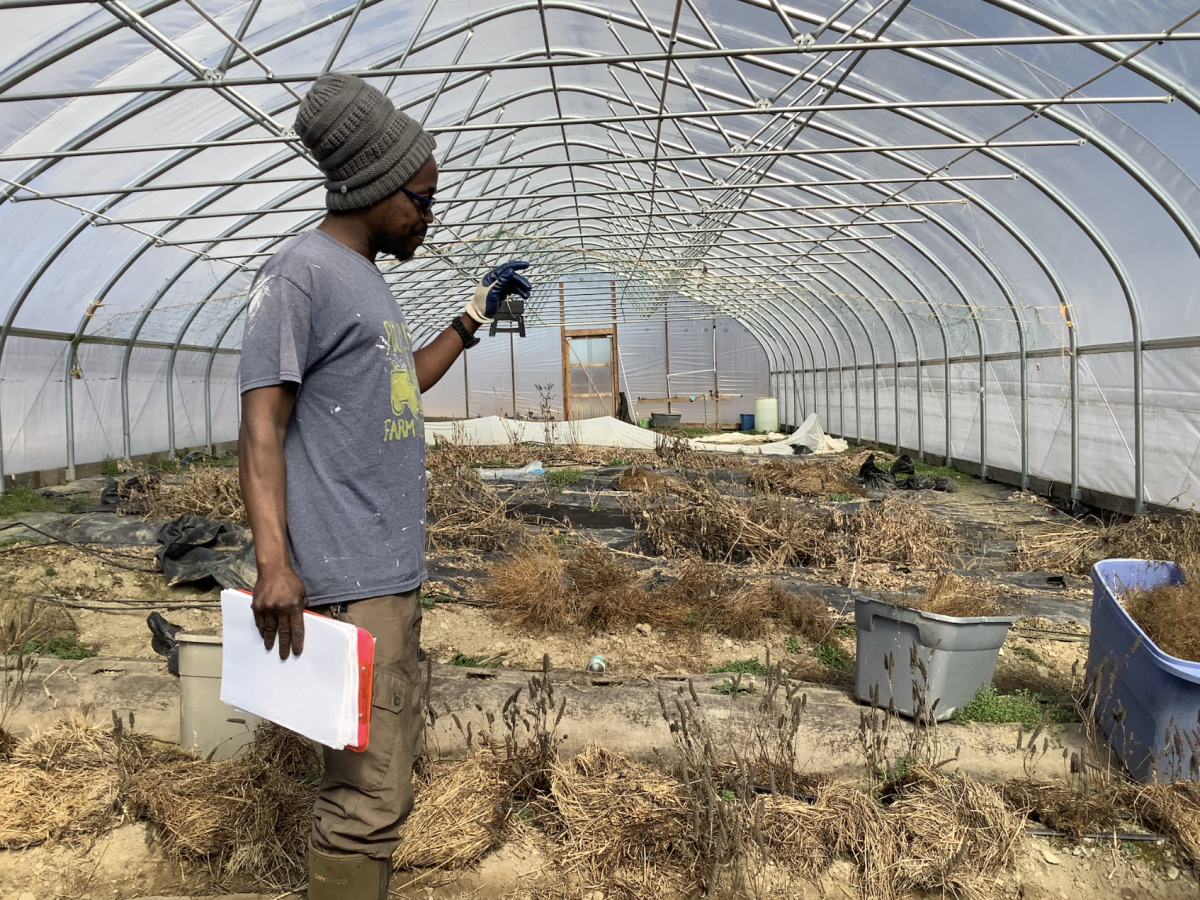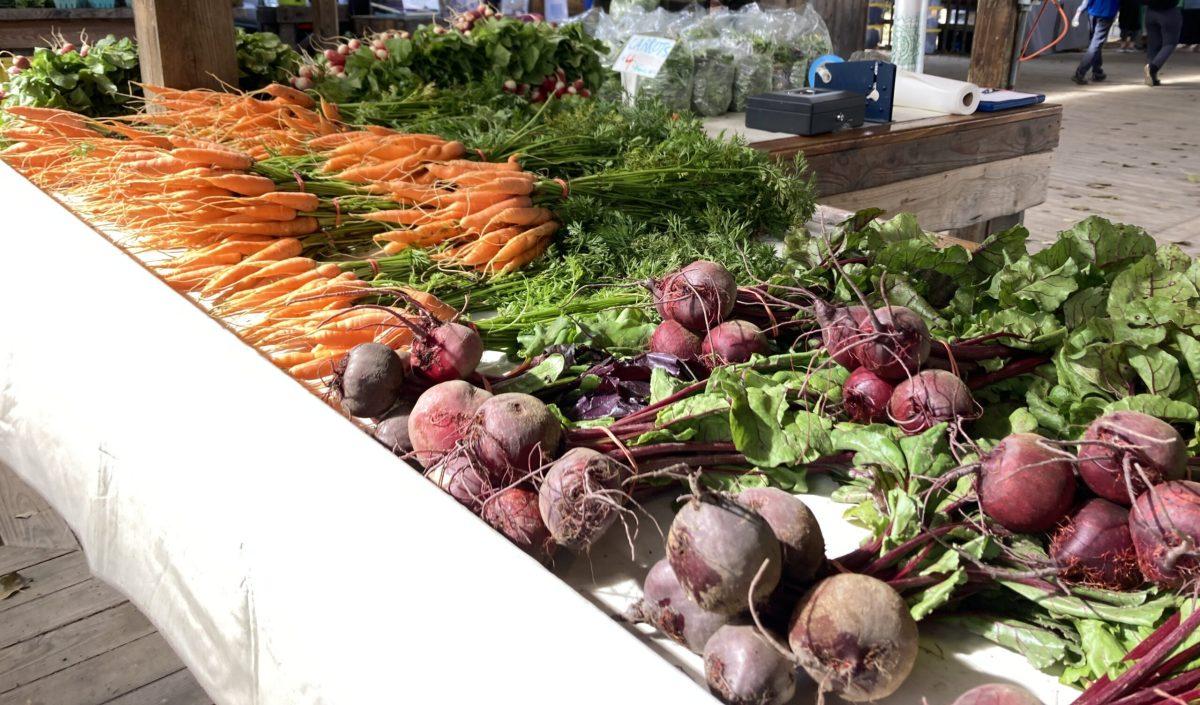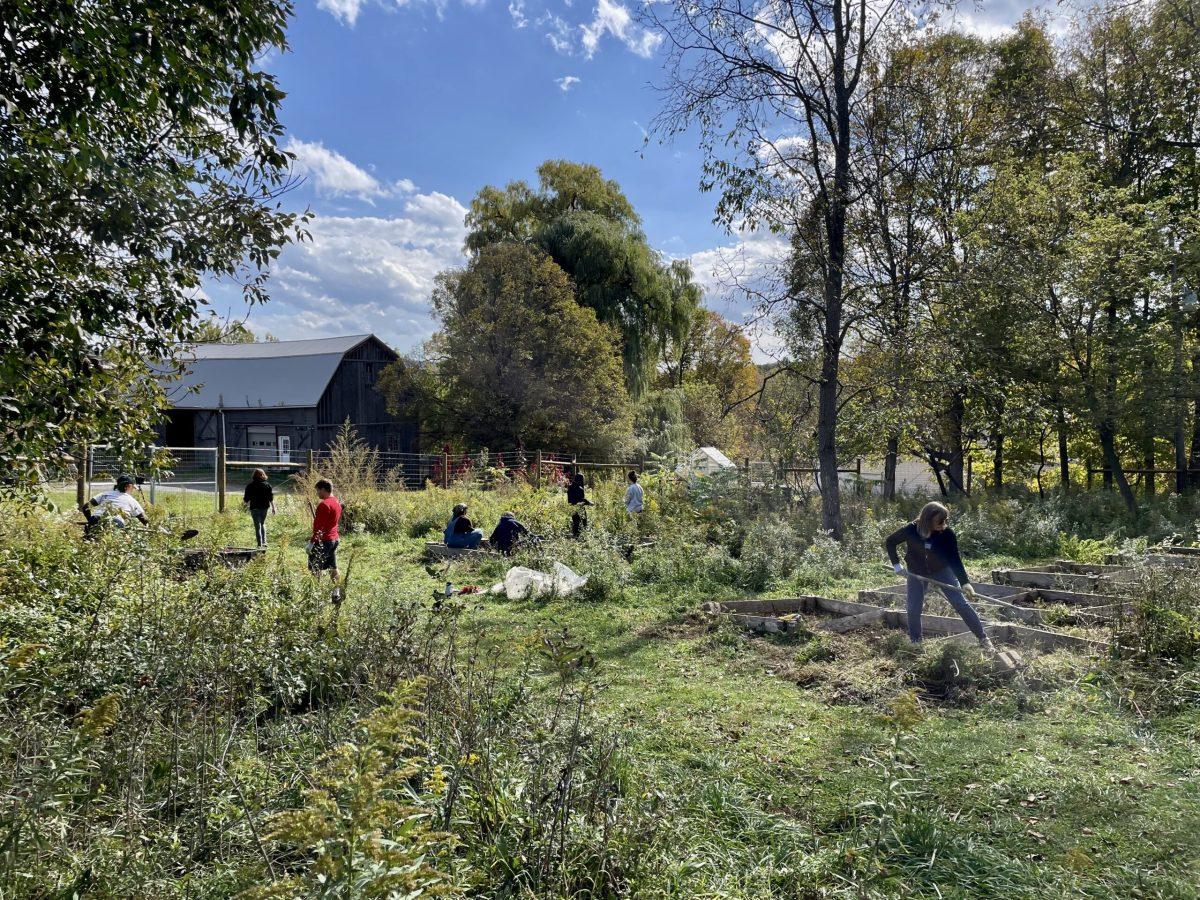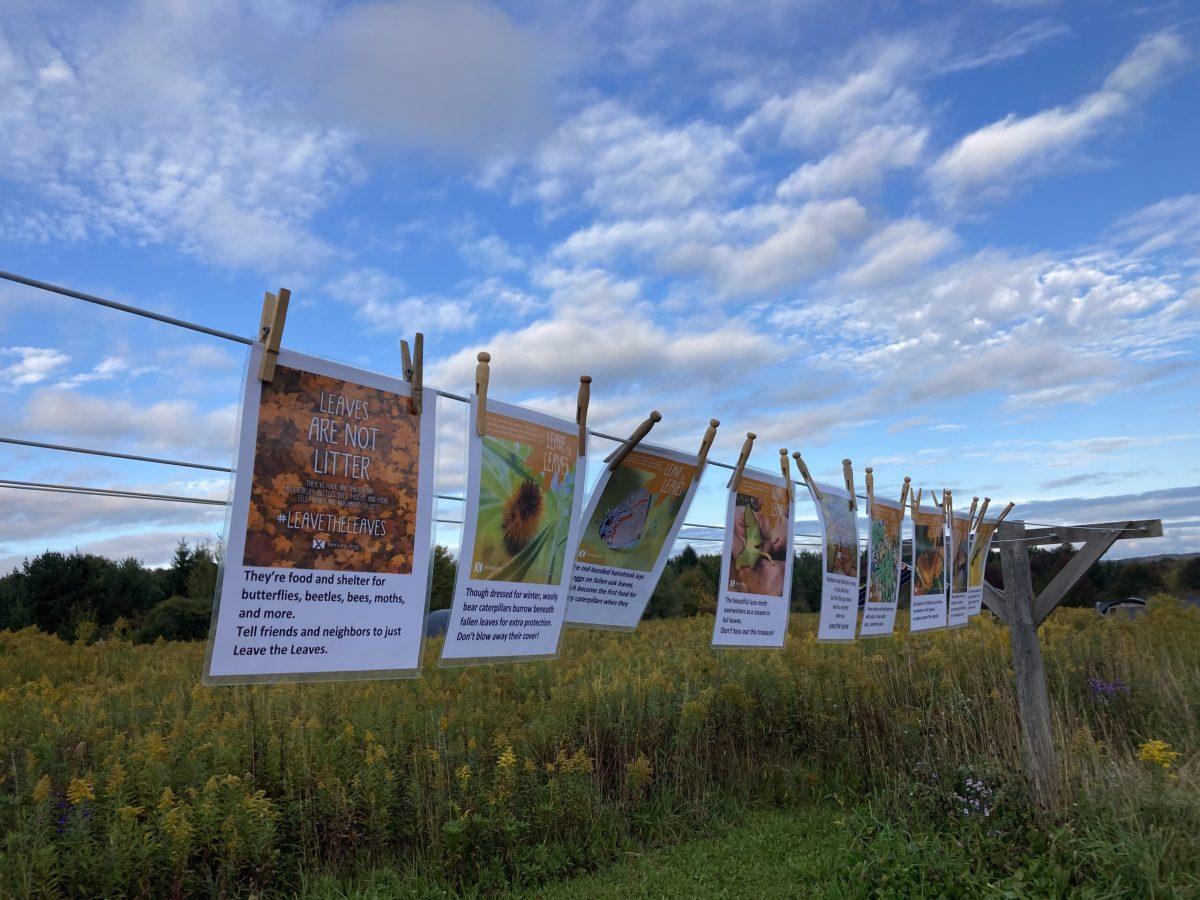While the Ithaca College administration aims for an environmentally friendly campus, the students are the ones leading the movement toward more sustainable living.
Joshua Enderle, a senior environmental studies major at the college, piloted the Circles composting program in February of 2017. Enderle is the manager of IC Eco-Reps, a program that hires students to work with the administration and help make campus more sustainable. Tompkins County Solid Waste donated composting bins and biodegradable bags, allowing for the initiative to begin in the Circle Apartments. Enderle said he believes composting is a small effort that can be taken in order to have a large impact.

“Composting takes food waste and turns it into soil rather than putting it in landfills where it breaks down and turn into methane, which is very hurtful to the environment,” Enderle said. “It also replenishes nutrients that are sucked out by plants or vegetables, keeping regenerative nutrient cycle.”
There are currently between 25-30 Circle Apartments participating in the composting program. Julia Glassman, a junior psychology major and Circles resident, composts with her family at home and said she was thrilled when the opportunity arose to continue this practice on campus.
“Composting is an aspect of sustainability that is easy to control,” Glassman said. “I’m controlling where my food is from and where it goes, and that’s a really powerful thing.”
A similar composting initiative in Circles was launched by the Eco-Reps in 2015, but this was unsuccessful due to a lack of understanding of what is compostable and was eventually removed in 2016. Eco-Reps collects composts curbside every Sunday at 3p.m. Each bin has a sticker listing what items are compostable, veering confusion and making composting easier for those participating. The list includes items such as tea bags, coffee filters and paper towel.

“If it’s biodegradable then you can compost it,” Glassman said. “Biodegradable just means that it can be broken down by the sun and recycled into the earth into soil, and the whole point of composting is to break down your food back into soil that can then be used for agricultural purposes.”
Composting has been available on campus for several years, though this is the first time it has been successful in the Circle Apartments. The dining halls at IC require students to throw their food waste away separately before placing their dishes in the area provided. This food is then composted, though it is not used as soil on campus because the amount of salt in the food served does not allow for plants to grow. Rather, it is taken by Tompkins County Solid Waste and mixed with other composts before being distributed to areas in the Ithaca community needing soil. There are also composting areas for students across campus such as in the pub, however, students do not sort their trash correctly.
“There are three different signs for composting, trash and recycling, but students don’t sort waste well,” Enderle said. “Even though there’s a sign, no matter how explicit it is, it ends up becoming two trash cans and maybe a recycling bin.”

Calvin Yohannan, a sophomore environmental studies major and an Eco-Rep, helps to schedule and collect the compost each Sunday. Though he is enthusiastic about the number of Circle residents currently composting, he feels it is difficult to reach out to others in the Circles community.
“Getting people aware of this is the biggest challenge,” Yohannah said. “Expanding it from the people who already know about it is the hardest part.”
The Eco-Reps hope to expand their composting initiative to the Garden Apartments in order to make the college a more sustainable campus. The program runs other initiatives on campus, such as “Take It or Leave It” (TIOLI) which has been in place for several years. In order to help reduce the amount of waste generated on campus, TIOLI bins are placed in the each dorm’s lounge where students can drop off things they don’t want to keep and pick up things they like at the end of each year. The food left in the bins is donated to a local food bank, while the clothes are donated to the Salvation Army or other local charities. The Eco-Reps keep some items in a room on campus where students can pick up what they need for free the following year.

“Last year we donated 2.5 tons of stuff, not including the shirts and clothes that were accepted and donated and not including the items we kept,” Enderle said.
Apart from being an Eco-Rep, Yohannan is on the environmental betterment committee of the Student Government Council and has co-written several bills for the college. This past week a bill was passed that will ban plastic bags from being distributed across of campus, excluding the bookstore.
While the Eco-Reps advocate for environmentally friendly practices on campus, Glassman encourages others to join the composting efforts in advocating for a more sustainable way of life.

“Part of sustainability for me is personal identity, who I am and what it means to be sustainable,” Glassman said. “Sustainability in general is taking controlling of your own life and saying ‘I’m going to have a healthy life, I’m going to be good to my own body, and I’m going to be good to the planet.’”

